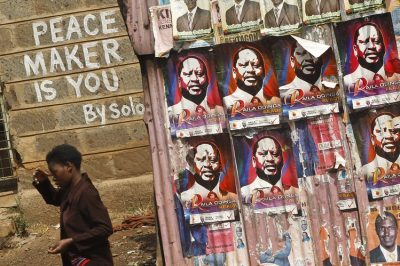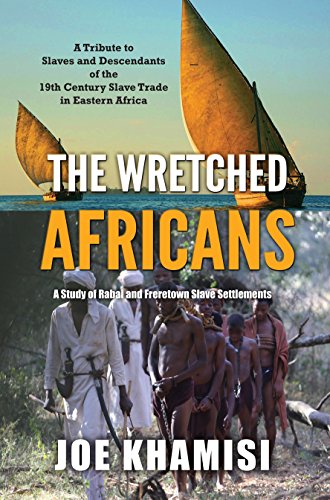Dai Kurokawa
By
Joe Khamisi
The role of the opposition in democracies all over the world is to question the government of the day and to hold it accountable. Thus, opposition parties require space, freedom, and opportunities to allow them time to prepare alternative programmes in readiness for the day they would take over.
Unfortunately in Africa, those in power are tenacious when it comes to dealing with opposition parties. They are unwilling to accommodate genuine demands, are averse to criticism, refuse to be advised, and look at alternative programmes as an aberration meant to conceal devious plans to dislodge them.
In an environment of inflexibility and suspicion such as this, opposition leaders find themselves languishing on the sidelines, many of them eventually dying without graduating to the executive office.
The first thing most African leaders do after assuming office is to find out what loopholes they can use to stay in power for as long as possible. They use all tricks in the “deceit manual.” They steal votes, jail opponents on tramped-up charges; eliminate those who disagree with them, and spend sleepless nights figuring out how to disorganize and/or dismantle opposition groups.
Examples of such mischiefs are everywhere in the continent.
In Uganda, Warren Kizza Besigye of the Forum for Democratic Change (FDC) has “lost” five consecutive elections to the cunning Yoweri Museveni since 2001. The former army officer and once Museveni’s personal doctor is one politician who has spent more nights in police cells than any other in East Africa.
In Zimbabwe, Morgan Tsvangirai ran in two elections in 2002 and 2008 and “lost” both to Robert Mugabe. He too is a jail-bird having been arrested and beaten innumerable times. His many attempts to coax the 92-year old Uncle Bob to reliquish power have failed. Mugabe says anyone who wants his job must earn it through constitutional means.
In Togo, Jean-Pierre Fabre of the National Alliance for Change (ANC) “lost” to Faure Gnassingbe in 2010 and again in 2015. He has to wait another five years to try again.
In Kenya, Raila Amolo Odinga, one of the most respected democracy champions in Africa will be making his fourth attempt at the presidency next year. A dynamic oppositionist like his late father, Oginga Odinga, Raila “lost” three elections in 1997, 2007, and 2013. Given his advanced age, 2017 will most likely be his last presidential contest. His chances this time around also appear rather cloudy.
Similar stories of opposition “losses” are told in many other African countries. In Ghana, Akufo Addo of the New Patriotic Party (NPP) is struggling to unseat the incumbent John Mahama in the coming November elections. He “lost” in 2008 to John Atta Mills and in 2012 to Mahama. Addo is considered one of the most combative opposition leaders in Africa but even with his aggressiveness his chances of winning remain at best zero.
In the Democratic Republic of Congo – Moise Katumbi, currently on the run in South Africa after being convicted of “illegaly selling property,” is another very frustrated opposition leader given that Joseph Kabila appears anxious to cling to power beyond his two constitutional terms.
Similar scenarios of opposition suppression exist in Sudan, Central African Republic, Comoros, Egypt, and so on. In Burundi opposition leaders have either been killed or fled after Pierre Nkurunziza refused to step down when his mandatory two term limit ended last year. He called elections last July and “won”
Is there any hope for opposition parties in Africa, you may ask? My answer is: no.
Oppositionists will continue to “lose” elections as long as incumbents refuse to relinquish power and use state resources to manipulate elections. They will lose because African presidents want to remain in office to continue looting public resources and appointing their wives and children to key positions as we are seeing in Uganda, Angola, Equatorial Guinea and other places.
Unless a level playing ground is thus created to enable them to engage freely in politics, opposition groups in Africa face extinction. The only thing they can do is to wait and wait, and pray and pray.
And that is my say.
Joe Khamisi
Joe Khamisi is a former journalist, diplomat and Member of Parliament. He is also the Author of ‘Politics of Betrayal:Diary of a Kenyan Legislator‘, a political memoir about the situation in Kenya between 2001, when the ruling party of President Daniel Arap Moi, the Kenya African National Union (KANU), merged with Raila Odinga’s National Development Party.
The book also narrates cases of corruption in Parliament and in the Media and records Senator Obama’s visit to Kenya in 2006. As a friend of Barack Obama Senior, the author also remembers the times and tragedies of the American-educated economist.
Joe Khamisi’s second book, a biography, ‘Dash Before Dusk’ is also now on sale.
Joe’s latest book is ‘The Wretched Africans: A Study of Rabai and Freretown Slave Settlements‘ which has recently been published and is now available to purchase.






No Comments Yet!
You can be first to comment this post!